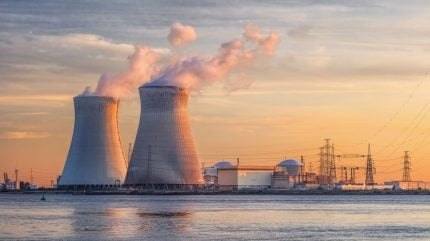
Meta is actively seeking proposals from nuclear power developers to support its AI and environmental objectives.
The company aims to add 1GW to 4GW of new nuclear generation capacity in the US, with delivery expected to begin in the early 2030s.
Meta believes that “nuclear energy will play a pivotal role in the transition to a cleaner, more reliable, and diversified electric grid”.
The company’s focus is on creating sufficient scale to achieve cost reductions by deploying multiple units.
This approach aims to meet Meta’s future energy needs while advancing broader industry decarbonisation.
Nuclear energy projects are capital-intensive and require extended development timelines, rigorous regulatory compliance, and longer operational lifespans compared to renewable sources such as solar and wind.

US Tariffs are shifting - will you react or anticipate?
Don’t let policy changes catch you off guard. Stay proactive with real-time data and expert analysis.
By GlobalDataThe technology major stated that solar and wind projects “remain a priority for investment”.
Early engagement in the lifecycle of nuclear projects is crucial due to their operational demands and the need for strategic partnerships.
Meta commented: “We believe working with partners who will ultimately permit, design, engineer, finance, construct, and operate these power plants will ensure the long-term thinking necessary to accelerate nuclear technology.”
Citing Goldman Sachs, Reuters reported that US data centre power use is projected to triple between 2023 and 2030, requiring 47GW of new generation capacity.
However, swiftly meeting this demand with nuclear reactors poses challenges, including an overburdened US Nuclear Regulatory Commission, potential uranium fuel supply issues, and local opposition.
The growing power demand from Big Tech data centres, driven by AI, is boosting the nuclear industry.
In October 2024, Google ordered six to seven small modular reactors (SMR) from Kairos Power, supported by a $300m investment from the US Department of Energy.
Microsoft announced in September its commitment to a 20-year electricity purchase from the Three Mile Island nuclear plant, leading to its reopening by Constellation Energy.
Additionally, Amazon is collaborating with US nuclear developer X-energy to provide low-carbon electricity for its data centres, aiming to bring more than 5GW of SMR-generated power online by 2039.



